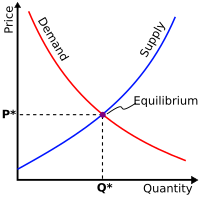Cost of poverty

Imagine you have a bunch of little coins in your piggy bank. Each coin represents something that costs money, like food, housing, clothes, and toys. These are things that you and your family need in order to live a good life. But sometimes, people don't have enough coins in their piggy banks to buy everything they need. This is called poverty.
When people are in poverty, they might not be able to afford healthy food, or a safe place to live. They might not have access to good schools or healthcare. They might have to work long hours for very little pay, or rely on government assistance just to get by.
But poverty doesn't just affect the people who are in it. It can also cost the rest of us a lot of money. When people are in poverty, they're more likely to get sick or injured because they don't have access to good healthcare or healthy food. This means that they might end up in the hospital, and the rest of us have to pay for their medical care through our taxes.
Poverty can also lead to crime and other social problems. People who are struggling to get by might turn to drugs, or resort to theft or violence to survive. This can lead to higher rates of crime in our communities, which can be expensive to deal with.
Finally, poverty can also take a toll on our economy. When people don't have enough money to spend on things like food, clothes, and toys, businesses suffer. They might have to lay off workers or even go out of business. This can lead to higher rates of unemployment, which can be costly for everyone.
So, while poverty might seem like something that only affects a few people, it can actually have a big impact on all of us. That's why it's important to help those who are struggling, and work together to create a world where everyone has the coins they need to live a good life.
When people are in poverty, they might not be able to afford healthy food, or a safe place to live. They might not have access to good schools or healthcare. They might have to work long hours for very little pay, or rely on government assistance just to get by.
But poverty doesn't just affect the people who are in it. It can also cost the rest of us a lot of money. When people are in poverty, they're more likely to get sick or injured because they don't have access to good healthcare or healthy food. This means that they might end up in the hospital, and the rest of us have to pay for their medical care through our taxes.
Poverty can also lead to crime and other social problems. People who are struggling to get by might turn to drugs, or resort to theft or violence to survive. This can lead to higher rates of crime in our communities, which can be expensive to deal with.
Finally, poverty can also take a toll on our economy. When people don't have enough money to spend on things like food, clothes, and toys, businesses suffer. They might have to lay off workers or even go out of business. This can lead to higher rates of unemployment, which can be costly for everyone.
So, while poverty might seem like something that only affects a few people, it can actually have a big impact on all of us. That's why it's important to help those who are struggling, and work together to create a world where everyone has the coins they need to live a good life.
Related topics others have asked about:
